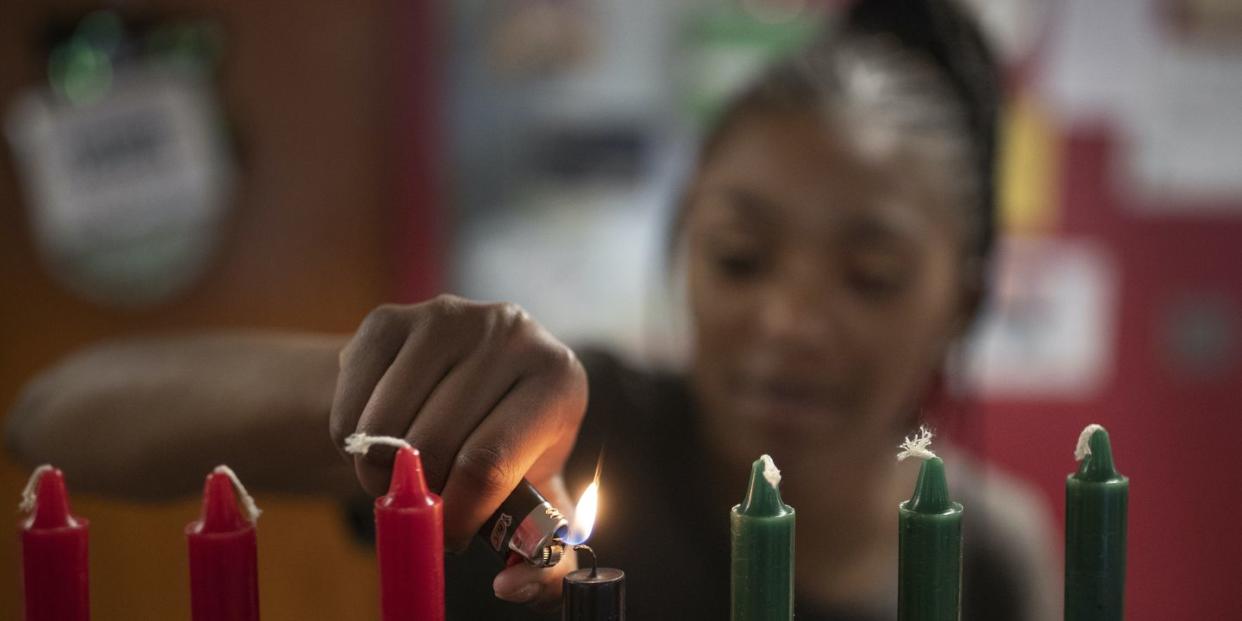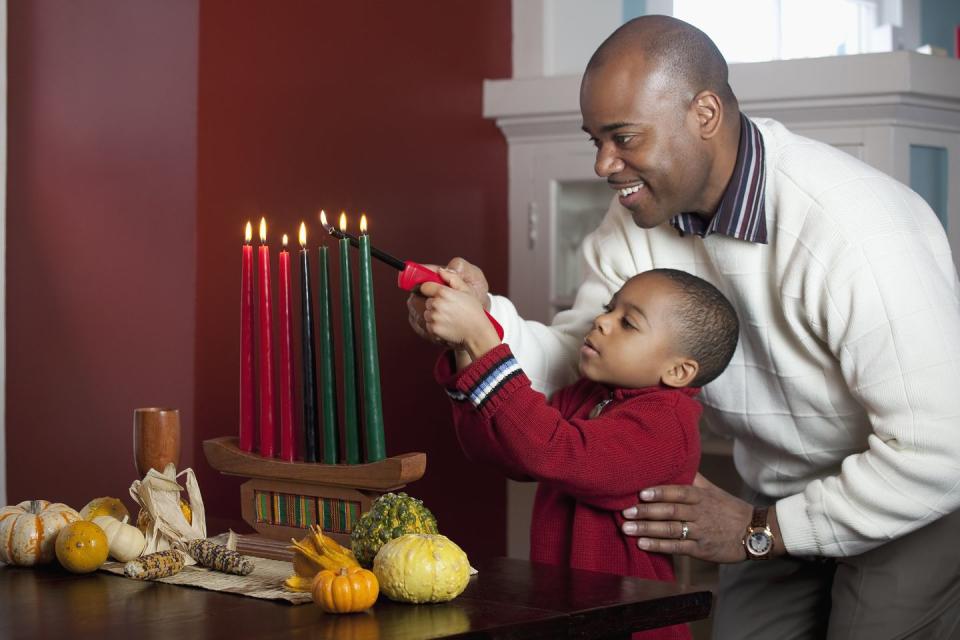When is Kwanzaa? Here's When To Start Your 2020 Celebration.

After Thanksgiving, Hanukkah, and Christmas, the final big holiday event of 2020 (or any year, for that matter) is Kwanzaa. Kwanzaa was created in 1966 by Dr. Maulana Karenga, a Black studies professor and chairman at California State University, according to History.com. The week-long celebration is a secular event meant to celebrate African history and culture, and to give African-American people a holiday all their own.
It is estimated that around 500,000 to 2 million Americans celebrate Kwanzaa every year, according to 2009 research. A 2012 study of 500 people found that 4% of them celebrated the holiday, which was more than the 3% that celebrated Hanukkah but drastically less than the 87% that celebrated Christmas. So while the holiday has gained mainstream popularity in recent years, it is still one of the lesser-celebrated winter holidays. But for the those who do celebrate Kwanzaa, it's a special occasion filled with food, gifts, and meaningful connection to a rich culture.
When is Kwanzaa 2020?
Kwanzaa occurs at the same time every year, and like Hanukkah, is a week-long celebration. Kwanzaa is celebrated from December 26 until January 1, capping off the holiday season and leading into the new year.
According to the Atlanta Journal-Constitution, each of the seven days of Kwanzaa celebrates a different principal: "Umoja (unity), Kujichagulia (self-determination), Ujima (collective work and responsibility), Ujamaa (cooperative economics), Nia (purpose), Kuumba (creativity), and Imani (faith)."
Those who celebrate Kwanzaa will light a candle for each principal every night of the holiday, then place it in a kinara — which is not unlike a menorah. The candles are red, green, and black, each with a different meaning. The Journal-Constitution reported that red stands for blood lost fighting for liberation, green stands for Black liberation's future, and the black candle stands for the people for whom this holiday exists.

On the final day of Kwanzaa, people exchange meaningful gifts (usually a book and a symbol of their heritage) and enjoy a large feast.
Why is Kwanzaa celebrated after Christmas?
In 1972, Imamu Clyde Halisi, the national chairman of the Black nationalist organization US, joked that the timing of Kwanzaa was convenient. "It begins December 26," Halisi told Time magazine. "So we'll be in a position to benefit from the after-Christmas sales."
But creator Karenga told BeliefNet that there's a much bigger reason that Kwanzaa is celebrated after Christmas. "A central model for Kwanzaa is umkhosi or the Zulu first-fruit celebration which is seven days and is celebrated about this time," he said. "Kwanzaa's model is older than Christmas and Hanukkah and thus does not borrow from them or seek to imitate them."
Karenga said it's also fine if people want to celebrate one of the other religious holidays, like Christmas or Hanukkah, in addition to Kwanzaa. He sees Kwanzaa as a cultural holiday and not a religious one, so it's not about competing with the other seasonal celebrations or holding one celebration above the rest.
Ultimately, for Karenga, Kwanzaa is all about celebrating "family, community and culture," placing an emphasis on "sharing good in the world," and embracing "the wonder, good and awesome responsibility of being African in the world."
And while Kwanzaa begins on December 26, 2020, those sentiments are worth honoring all year long.
Want to make your holidays shine? You’re in luck! Subscribe to Woman's Day today and get 73% off your first 12 issues. And while you’re at it, sign up for our FREE newsletter for even more of the Woman's Day content you want.
You Might Also Like

